Wi-Fi signals will undergo certain changes due to different obstacles encountered in the process of propagation. Therefore, when installing wireless network devices such as routers, repeaters, it is necessary to pay attention to the influence of the surrounding environment on Wi-Fi signal propagation.
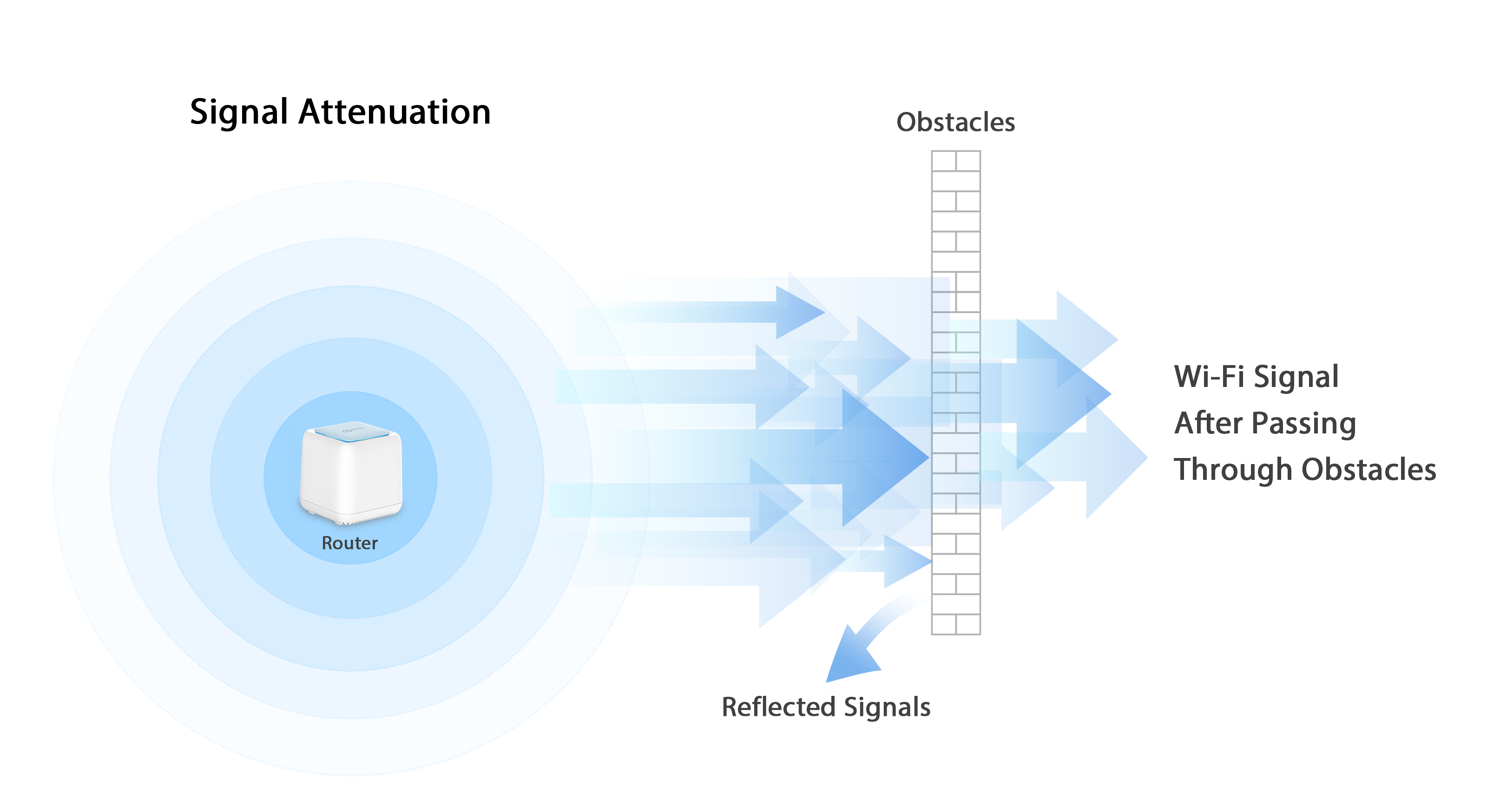
Various obstacles (walls, ceilings, furniture, metal doors, etc.) located between Wi-Fi devices may partially or heavily reflect/absorb the radio signal, resulting in partial or total signal loss. Every obstacle in the signal distribution area reduces the signal strength. The more obstacles, the worse the signal. Wi-Fi signals not only try to bypass obstacles, but also pass through them, which causes additional reflections and absorption of parts of the original signal.
In everyday living environments, the main obstacle to Wi-Fi signals is buildings. The presence of solid walls (concrete + rebar), sheet metal, plaster on walls, rebar, etc. can affect the quality of the Wi-Fi signals and can significantly degrade the performance of Wi-Fi devices.
And Wi-Fi signals are not only affected by the number of walls in the propagation path, but also by their thickness.
There are materials with different signal absorption coefficients. For example, wood, plastic, ordinary glass, and plasterboard are materials with low absorption. Tinted glass, water (large aquarium), brick, plaster - materials with medium absorption. Materials with a high absorption coefficient, which have a strong negative impact on the signal — metal (iron doors, aluminum and steel beams), concrete (inside which there is rebar), and ceramics. Indoors, mirrors (strongly reflecting the signal) and tinted windows can also cause radio interference.
The following table shows the loss of Wi-Fi signal when passing through different environments, giving the value (not absolute value, but approximate value) of Wi-Fi signal passing through different obstacles in the 2.4 GHz and 5GHz frequency bands.
| Obstacles | Thickness (mm) | 2.4G Signal Attenuation(dB) | 5G Signal Attenuation(dB) |
|---|---|---|---|
| Ordinary Brick Wall | 120 | 10 | 20 |
| Thickened Brick Wall | 240 | 15 | 25 |
| Concrete | 240 | 25 | 30 |
| Asbestos | 8 | 3 | 4 |
| Foam Board | 8 | 3 | 4 |
| Hollow Wood | 20 | 2 | 3 |
| Ordinary Wooden Door | 40 | 3 | 4 |
| Solid Wood Doors | 40 | 10 | 15 |
| Ordinary Glass | 8 | 4 | 7 |
| Tinted Thick Glass | 12 | 6 | 10 |
| Thickened Glass | 12 | 8 | 10 |
| Bullet-Proof Glass | 30 | 25 | 35 |
| Load-Bearing Column | 500 | 25 | 30 |
| Shutter Doors | 10 | 15 | 20 |
| Steel Plate | 80 | 30 | 35 |
| Elevator | 80 | 30 | 35 |
| Synthetic Material | 20 | 2 | 3 |
| Metal | 80 | 30 | 35 |
Here is what we do to deal with this issue:
1) High-Power FEM
Improves transmission power to strengthen signal.
2) External Copper Antennas
Antenna dBi and materials are important.
In terms of dBi, 7dBi > 5dBi > 3dBi;
Long Range Wi-Fi Antenna and Boosters
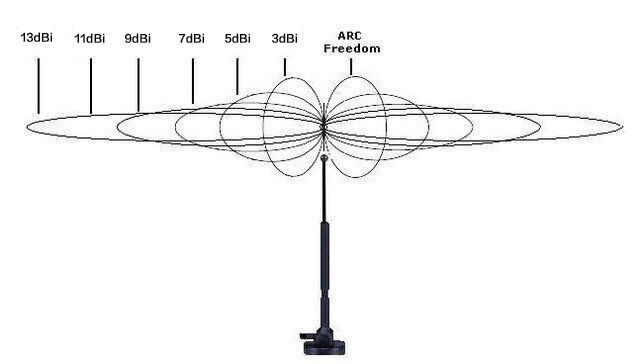
In terms of antenna materials, Copper > Iron > PCB.
We have compared products of different brands, most of the products with built-in antennas use iron antennas and PCB antennas, but our products use copper tube antennas.
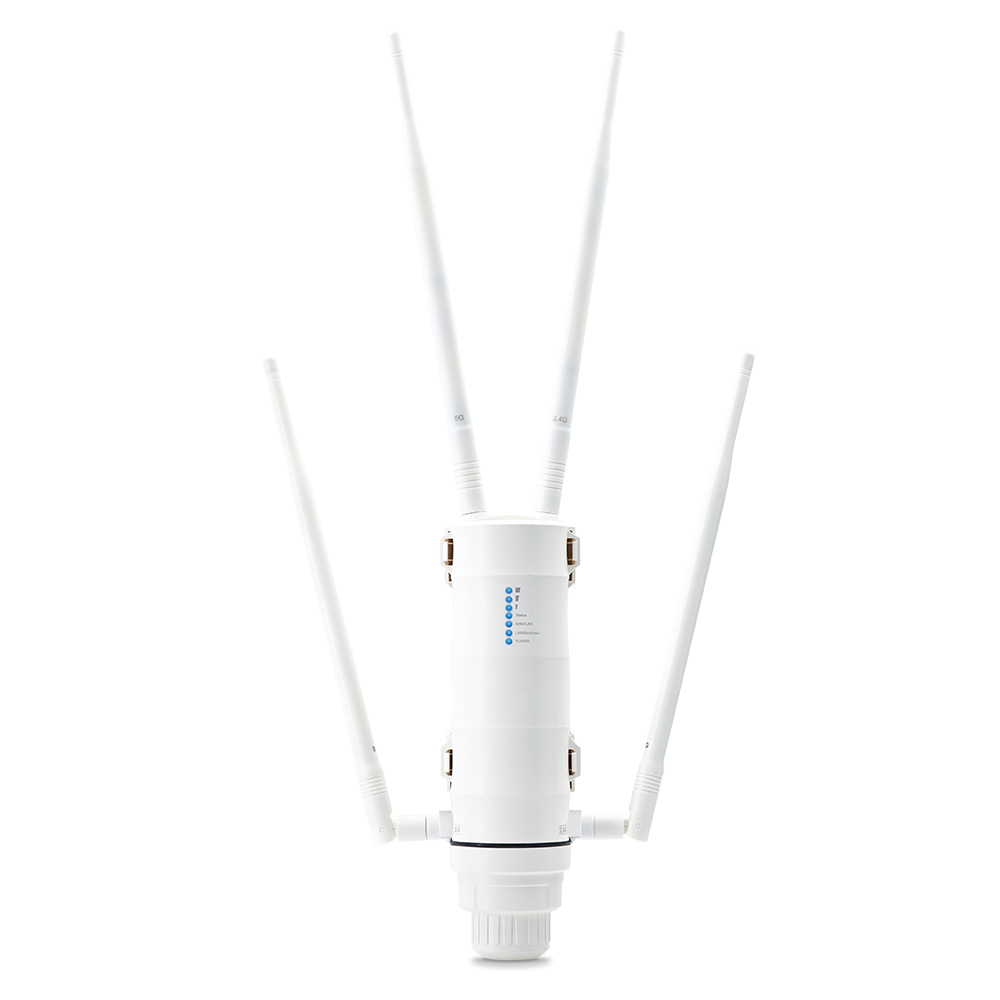
WING 12M - High Power AC1200 Dual-Band Outdoor Router / AP / Repeater with Four 7dBi Omnidirectional Antennas
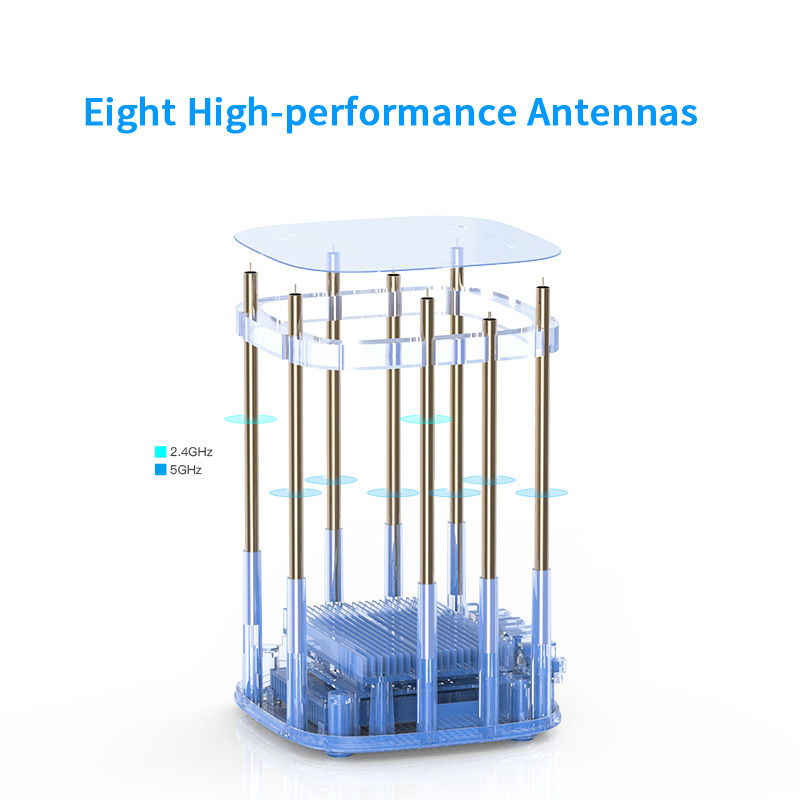
HALO Polar – AC3000 Tri-band Whole Home Wi-Fi System with Six 7dBi 5G Copper Tube Antennas and Two 5dBi 2.4G Copper Tube Antennas
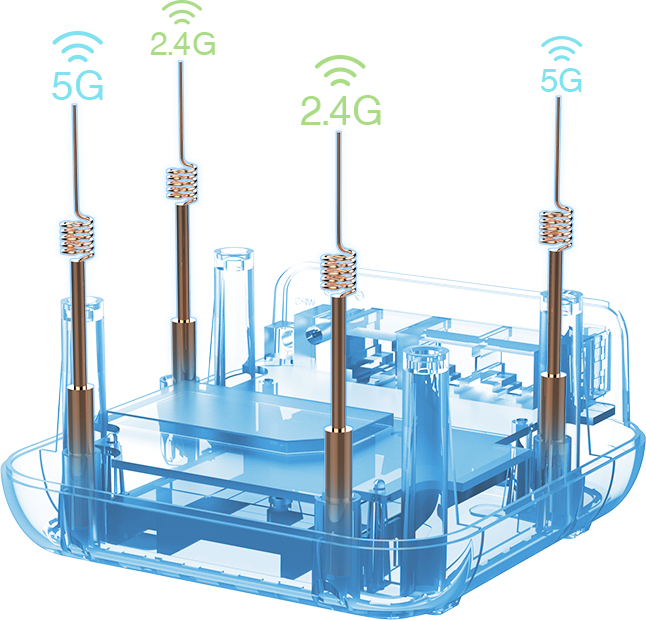
Halo Base Pro – AC1200 Tri-band Whole Home Wi-Fi System with Four Built-in 3dBi Copper Tube Antennas
3) Better way to install antenna
For example, different ways to install antennas also have a certain impact on the Wi-Fi signal. To get better Wi-Fi signal, we suggest you use two ways on the left.
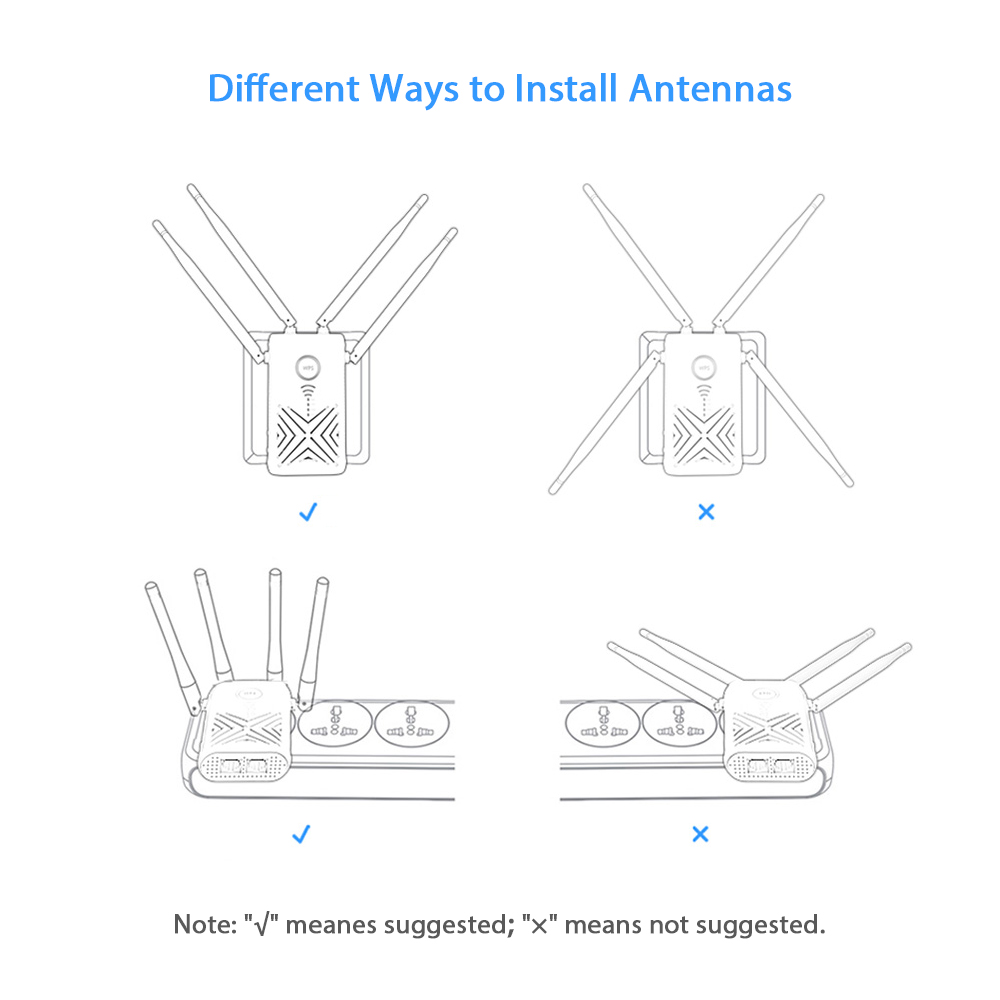
Instructions for Outdoor High Power Routers
In outdoor scenarios, when two high-power routes are used in pairs and connected as extender, the transmission distance between them can reach 1000m;
If terminal devices such as mobile phones/tablets/notebooks want to connect to Wi-Fi signals, they should be connected to the nearest router, and the distance is generally not greater than 200m.
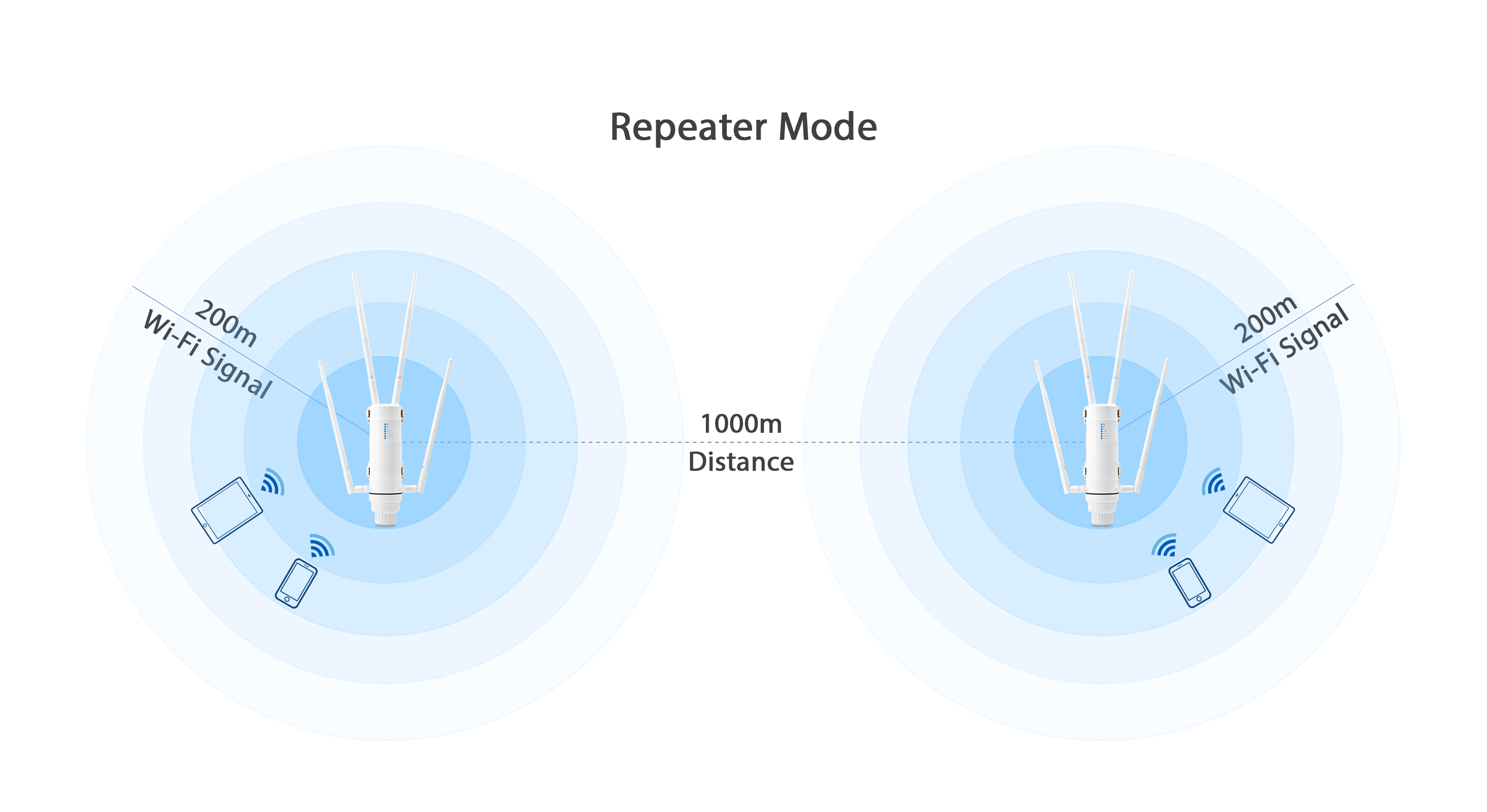
Note:
What this article is talking about is that the terminal device uses Wi-Fi signals, not mobile communications such as 5G/4G/3G signals.
Get the Scoop First
Subscribe to our official website to receive exclusive first-hand news and stay up-to-date on our new product releases and promotions!